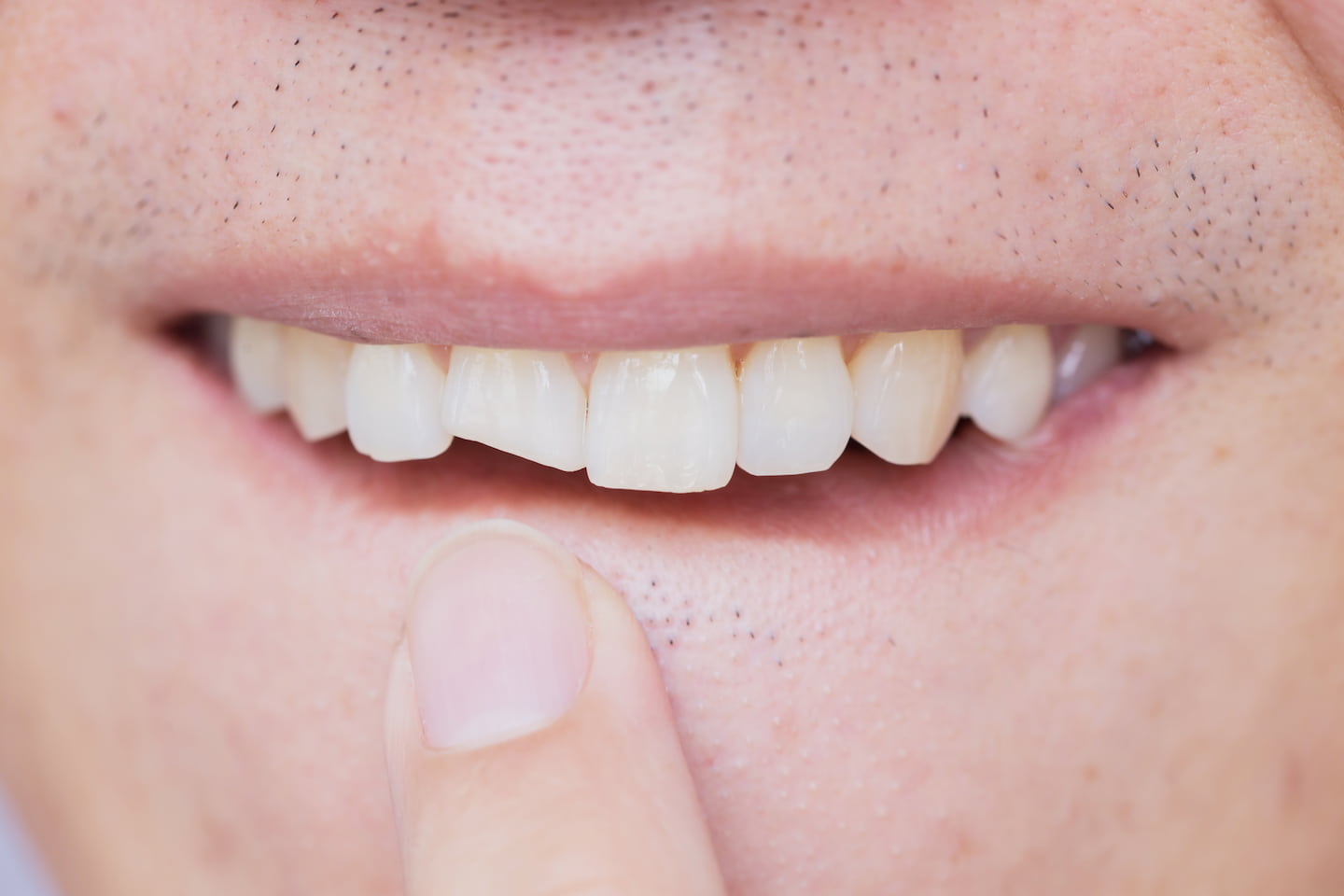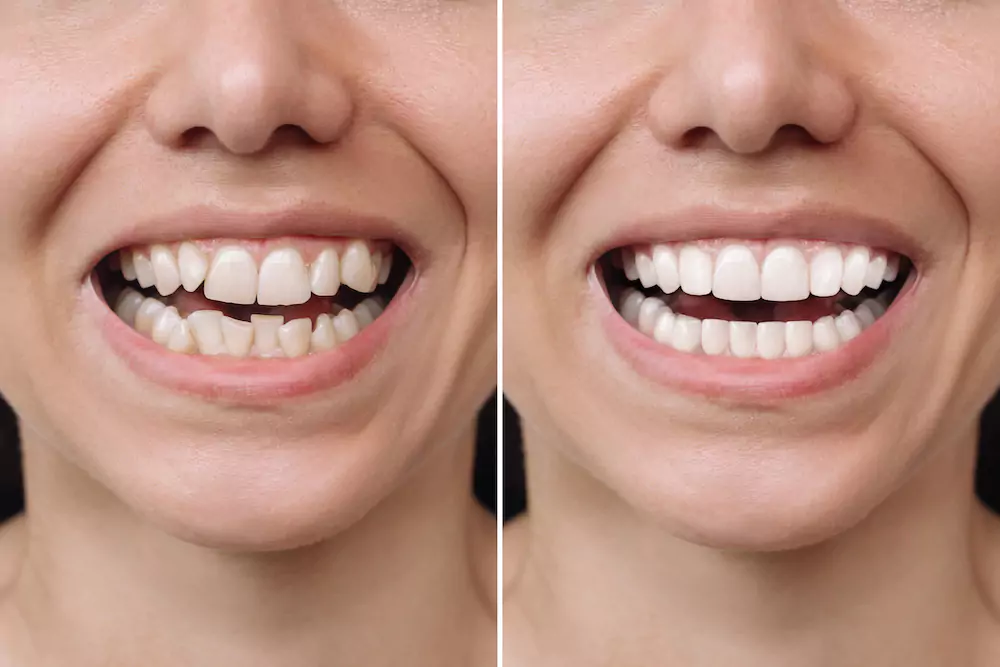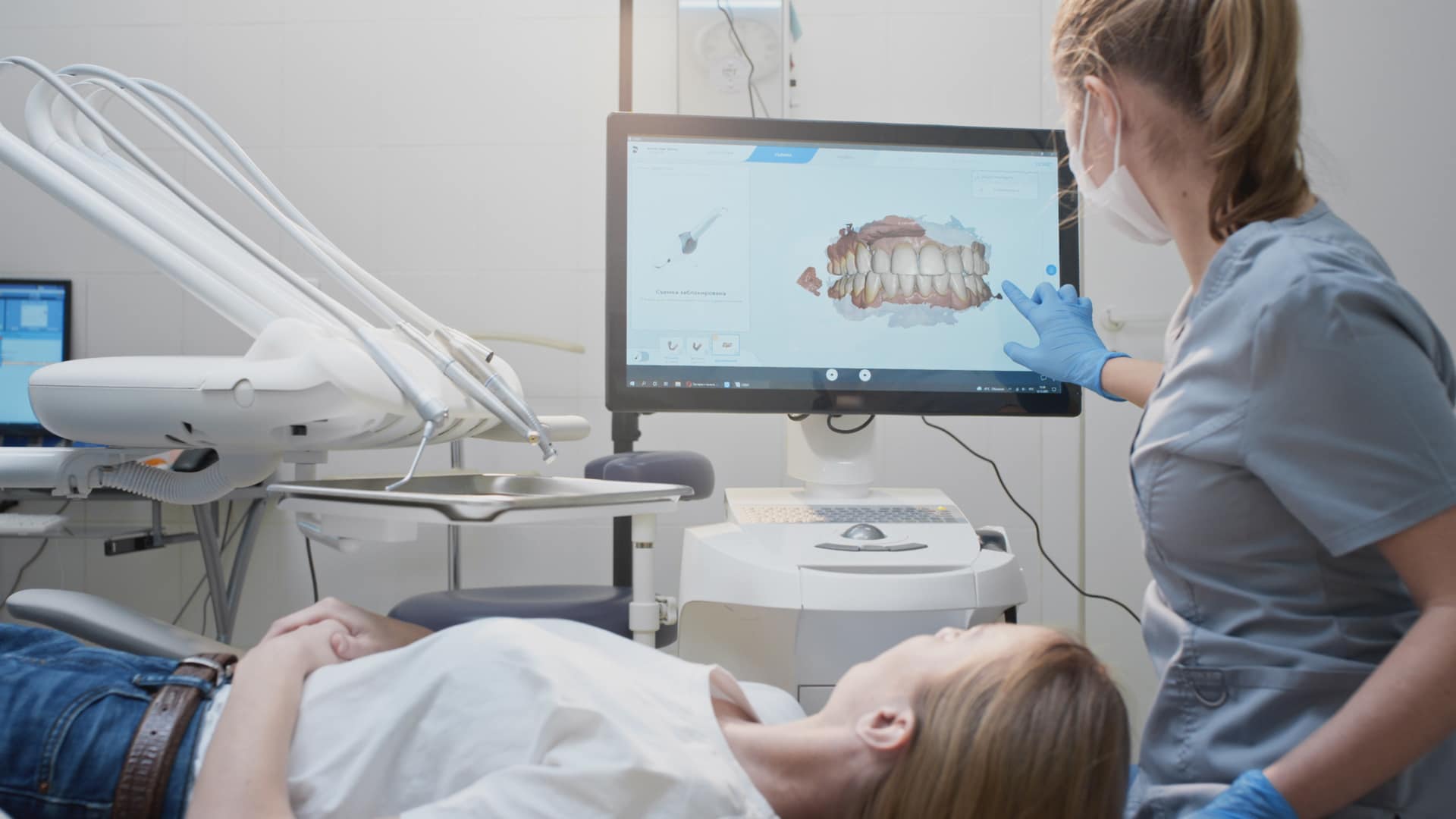
Why Are My Teeth Cracking All of a Sudden? What Causes Cracked Teeth?
The most common reasons for cracked teeth include trauma, bruxism, ageing, dietary factors, and weakened enamel. If you’ve wondered,”why are my teeth cracking all of a sudden?”, it’s likely due to one of these reasons.
I know a cracked tooth can be alarming and lead to complications. Knowing how to recoginise signs of a cracked tooth and what to do can help make the situation less stressful.
In this post, I’ll cover common causes of sudden tooth cracking, how to prevent cracked teeth, and when to seek help from your dentist.
7 Common Causes of Sudden Tooth Cracking
1. Teeth Grinding (Bruxism)
Teeth grinding, also known as bruxism, often occurs during sleep. Unconscious teeth grinding puts excessive pressure on teeth. The immense pressure placed on teeth by this habit makes them more susceptible to cracks.
Since it commonly happens during sleep, you may not realise you are grinding your teeth. Watch out for symptoms of teeth grinding, such as:
- Jaw pain and tension
- Morning headaches
- Clicking, popping, or reduced range of motion in the jaw
- Sleep disruptions
- Increased tooth sensitivity to hot and cold foods and drinks
- Tooth damage
If you notice signs you may be grinding your teeth, consult with your dentist. A custom-fit mouthguard may be a solution to preventing teeth grinding and reducing your risk of cracked teeth. Learn more about teeth grinding on our page here: Bruxism Dentist Perth.
2. Biting Hard Foods
Chewing on ice, hard lollies, or unpopped popcorn subjects teeth to tremendous force. This excessive pressure can cause immediate fractures.
I recommend avoiding hard foods as much as possible, but I love enjoying popcorn on occasion too! I understand wanting to enjoy your favourite foods, so make sure to take your time and chew mindfully when you do.
3. Sudden Temperature Changes
Sudden temperature changes is the cause of cracked teeth that surprises my patients the most. Consuming a very hot food followed immediately by a cold food can cause the enamel to expand and contract. This can lead to sudden cracks in teeth.
So if you want to enjoy an ice cold beverage immediately followed by a hot food, do so with care. I recommend waiting at least 15 to 20 minutes in between hot and cold foods and beverages.
4. Ageing and Natural Wear
Over a lifetime, teeth undergo repetitive motions and pressure. As we age, tooth enamel naturally weakens from this repetitive wear and tear, making teeth more prone to fractures. The ageing process also decreases saliva production, leading to more brittle teeth.
This makes regular dental checkups non-negotiable as you age. While we can’t stop the ageing process, routine dental checkups can detect and address issues early to help protect teeth.
5. Large Fillings and Weakened Teeth
Existing dental work, such as a large filling, can weaken teeth. If you have large fillings or other dental work, regular dental checkups are vital. Your dentist can monitor the condition of any large fillings to ensure they are functioning as they should. Amalgam fillings in particular tend to crack teeth.
6. Trauma and Accidents
Falls, injuries during contact sports, or unexpected impacts can cause cracks in teeth.
I recommend wearing a mouthguard during contact sports to protect teeth from trauma and accidents that can cause cracks. Using teeth to open packages can also cause trauma and sudden tooth cracking.
7. Poor Oral Hygiene
Failing to brush and floss every day allows bacteria and plaque to accumulate. This contributes to tooth decay that can penetrate deep into the tooth and weaken its structure. Poor oral hygiene also erodes tooth enamel. Weakened tooth enamel is more susceptible to sudden cracking.
To keep your teeth strong and healthy, follow a good oral hygiene routine that includes daily brushing and flossing, mouthwash, and regular dental checkups.
Signs You May Have a Cracked Tooth
A cracked tooth may cause pain when chewing, sensitivity to temperature changes, and other symptoms. However, minor cracks may not cause any symptoms or be visible. Left untreated, minor cracks can worsen over time and lead to serious complications, such as tooth loss.
Seeing a cracked teeth dentist Perth for regular checkups is the best way to detect minor cracks before they lead to complications.
The level of discomfort and symptoms vary, but possible signs of a cracked tooth include:
- A sharp pain when biting and chewing
- Increased sensitivity to hot, cold, or sweet foods and beverages
- Pain that comes and goes and is hard to pinpoint and unpredictable
- Gum tenderness or swelling near the affected tooth
- Discomfort when you stop biting down and release pressure
- Discoloration, darkening, or a change in tooth color
- Unexplained bad breath or a foul taste (a result of bacteria building up in the crack)
- Feeling a rough spot or sharp edge on a tooth
- A loose tooth
- Increased pain during certain jaw movements
Are Certain Parts of the Tooth More Susceptible to Cracks?
Yes, some parts of teeth are more prone to cracks than others, including:
- Chewing Surfaces: The chewing surfaces of premolars and molars are at a higher risk of cracking. The fissures and grooves in molars are more susceptible to decay. Decay can weaken the enamel and leave the chewing surfaces more prone to cracking.
- The Cusps: The pointed parts on the teeth’s biting surface, or cusps, are more susceptible to fractures. These points are under immense pressure during chewing. Over time, this wear and tear can weaken the cusps and put them at risk of cracking.
Preventing and Treating Cracked Teeth
Strengthening and Protecting Your Teeth
Being proactive with your oral health can help protect your smile. I recommend these steps to reduce your risk of cracked teeth:
- Follow a Good Oral Hygiene Routine: Brushing and flossing every day and using a fluoride toothpaste can reduce your risk of cracked teeth.
- Be Careful with Hard Foods: Prevent unnecessary pressure on teeth by limiting or avoiding hard foods. Limit your consumption of unpopped popcorn kernels, lollies, and other hard foods. Avoid chewing on non-food objects, such as fingernails, pens, or ice.
- Address Teeth Grinding: If you grind or clench your teeth, ask your dentist about a custom bite guard to protect your teeth. Wearing a bite guard at night can prevent excessive wear and cracked teeth.
- Wear a Mouthguard: If you play contact sports, a custom-fitted mouthguard is crucial for protecting teeth against trauma.
- Attend Routine Dental Examinations: Regular dental checkups are one of the best ways to prevent cracked teeth. During general checkups, your dentist can detect risks of cracked teeth, such as severe decay or poor lifestyle habits.
By being proactive with your oral health, you can reduce your risk of a cracked tooth. Additionally, regular professional dental cleanings remove plaque and tartar buildup to prevent the weakening of tooth enamel.
- Seek Prompt Dental Care: If you feel pain, suspect a cracked tooth, or experience trauma to the mouth, contact your dentist immediately. Early intervention is the best way to prevent further damage and costly treatment.
Restorative Dental Treatments
Fortunately, there are a variety of restorative dental treatments available to address cracked teeth. Depending on the location and severity, cracked teeth may require crowns, bridges, or cusp coverage fillings.
Restorative treatments for cracked teeth include:
- Dental Crowns and Bridges: Custom crowns and bridges can restore function, fortify cracked teeth against fractures, and improve appearance. Custom-fitted crowns act as a protective cap over a cracked tooth to prevent further damage and improve aesthetics. I usually recommend crowns for teeth that are cracked. Crowns may seem expensive, but they are cheaper than replacing a missing tooth.
Other Cracked Teeth Treatments
If a cracked tooth is severe or ignored for too long, complications can arise. Cracked teeth can lead to pain and tooth loss if it is a catastrophic crack. Tooth loss can lead to further oral health complications, including inability to chew, difficulty speaking, and aesthetic concerns.
In more severe cases, we need to consider other cracked teeth treatments, such as:
- Tooth Extraction: Major damage or deep cracks that reach under the gums may require removal of the tooth.
Concerned About Cracked Teeth? Let Genesis Dental Help
Experienced a tooth fracture and wondering “why are my teeth cracking all of a sudden?” can be scary. Our team at Genesis Dental is here to help detect and fix any tooth cracks and reduce your risk of future cracked teeth.
If you’ve noticed cracks in your teeth or are experiencing discomfort when chewing, it’s important to seek professional advice before the problem worsens. At Genesis Dental, our expert team can assess your condition and recommend the best treatment to restore your smile and protect your oral health.
Book an appointment today to get personalised care and expert solutions for cracked teeth. Visit Genesis Dental to learn more about our services and how we can help you maintain strong, healthy teeth.


